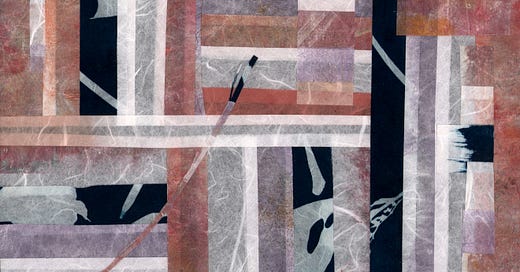The Hush and the Howl was unforeseen—an eruption from a restless mind aching for new ways to see and speak. It has become, in this short stretch, a kind of soul companion. I read and make and think toward it throughout the day. I write in the morning dark.
The great surprise is you. Those who are joining me on this journey, those who have said, with their generosity, keep going. I cannot thank you enough. You are a brightened light.
Each month, I’ll be doing this special post for paid subscribers. I’ve promised book talk and prompts. There will always be one thing more.
Book Talk
In the Assay essay “On Reading Fast and Reading Slow” (now bound into my new essay collection, You Are Not Vanished Here), I wrote of the ways in which I am teaching myself to read differently. My desire to reframe my relationship to sentences has affected my book-buying decisions and sent me back into my bookshelves to “shop” among those books that—sometimes vaguely, sometimes acutely—I remember loving.
James Salter and Raymond Carver
My recent re-reads have included James Salter’s short story collection Last Night (my friend Leslie Pietrzyk sent me back to this volume) and a handful of classic Raymond Carver stories from Where I’m Calling From.
Reading Salter and Carver back to back gave me a feeling I can only express in this fashion: Salter writes with the power of the slash—the sentences are pristine, the stories are lacerating, the human beings are caught up in betrayals, regrets, abrasions, and the reader feels caught up, too, a little out of breath and chastened. Carver, on the other hand, writes with a kind of roundedness—he has compassion for his flawed characters, puts them in uncomfortable scenarios, achieves emphatic empathy, even for a boy who murders a fish. Salter intimidates me. Carver breaks my heart. It is as easy as that, and as complicated.
Wallace Stegner




